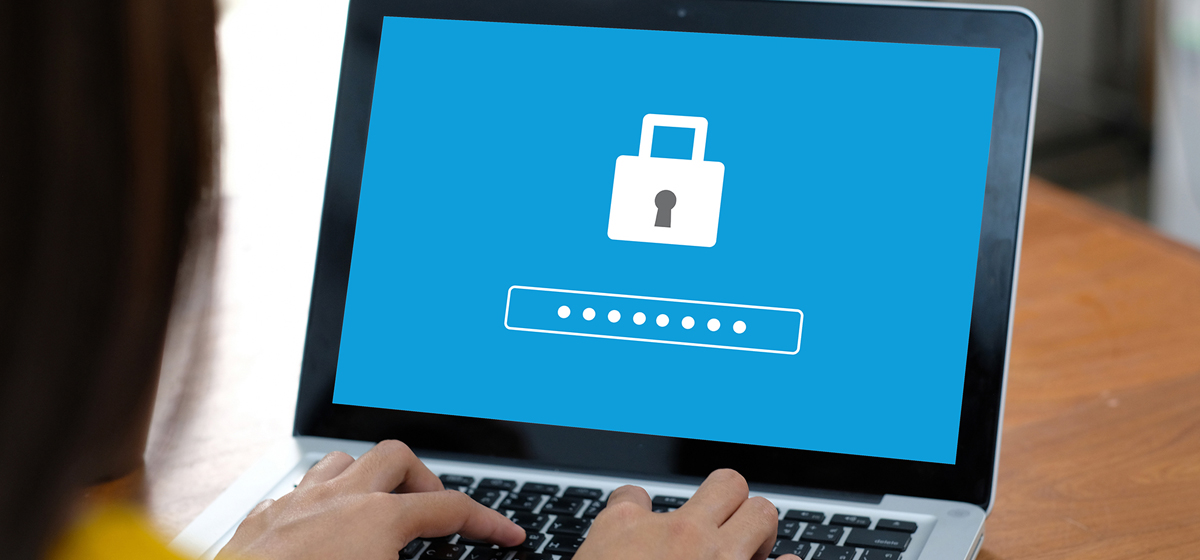The internet age has added a lot of perks to our lives – food delivery services, online bill pay, and of course, Netflix (remember having to sit through commercials?). What isn’t so exciting about everything going digital are new risks to privacy. Just like it’s important to be wary of strangers and sharing personal information – you also have to be careful with whom and what you connect to online. In fact, according to the Internet Crime Complaint Center’s 2019 report, there were 467,361 complaints in 2019. That’s a lot of cybercrime!
So, if you’ve ever found yourself looking over your shoulder while online shopping, this article is for you! Today we’re covering five tips to help you secure your online information so that you can conquer the digital age with confidence
1. Be Wary of Wi-Fi
While it can be relaxing to surf the web while sipping an iced latte cold brew, your favorite coffee shop may not be the best place to catch up on paying bills. Hackers can steal your information and track what you’re doing through public Wi-Fi networks. The “CoffeeLover321” network might be fine for googling “how much caffeine is safe to consume in one day?” – but it’s definitely safer to opt out of checking your bank account balance using a public Wi-Fi network.
Here’s a tip: you can create your own personal and secure hot-spot using your phone and a network password only you know. Don’t have a hotspot? Try a VPN (virtual private network) to secure your internet connection. If you’re interested in learning more about VPNs, check out this article from Norton to get all the extra info.
2. Keep Your Passwords Personal
Not sharing your information should be a rule of thumb for all your digital details. The adage “sharing is caring” should never apply to keeping your passwords private! Yes – you can still share the Netflix login with your partner or best friend, but make it a point to keep your important passwords a secret. You should also try to make each password unique. Reusing passwords across different websites and accounts means that once a hacker breaks one password code, he pretty much has the keys to the rest of your financial and consumer world. If your iPhone and debit card pins match – Hackerman404 just got himself a new pair of shoes on you! Having a little trouble keeping track of all your hacker-proof passwords? Check out this list of password management programs from Digital Trends to help you keep things sorted.
3. Don’t Open Suspicious Attachments
Email subject line: “Your car insurance payment is late! Click the link below to avoid xyz urgent penalty.”
We’ve all been there – whether it’s a spam call, email, or text message – there is some stranger insisting you engage with an attachment or link. Just as your parents told you not to talk to strangers growing up, you should never follow a link, call a number, or open an attachment from someone you don’t know. What’s worse, it’s not just strangers you have to look out for – hackers are getting clever and creating accounts that appear to be from legitimate companies or people you actually know. If it seems fishy, it probably is – so keep an eye out for anything suspicious! The next time you receive a questionable message from a company, instead of following a link, open a new browser window, visit that company at its main website and search for related topics. Better yet, call the company’s customer service and verify that the email is legit. You can also hover or right-click on the message sender’s email address to get more information about whether it looks suspicious or deviates from a typical company email address.
In the example below, notice the subtle difference in email addresses that should give the savvy consumer a hint that sender 2 should not be trusted:
Sender 1 (real address): address@contactme.com
Sender 2 (fake address): addre$s@c0ntactm3.com
4. Opt-in to Alerts
Receiving notifications can be a little overwhelming or inopportune from time to time; however, it’s important to opt-in to make purchases or receive other types of alerts from your bank and credit card providers. Notifications will help you keep track of your purchases, expenses and deposits so that you can manage a balanced budget. [link to budget article] In addition, keeping a real-time eye on debits from your account makes it easier to spot fraud. Stop identity theft in its tracks by detecting a suspicious charge the moment it happens – your wallet will thank you later!
5. Beef Up on Security
It isn’t just celebrities and superstars that need security teams – every person who accesses the internet should have some form of digital protection. Antivirus software installed on your computer can help keep an eye on all your files, scan for viruses, and protect your data from prying eyes. There are both paid and free options to help you beef up security and better protect your personal information. If you’re interested, check out this list of the best antivirus protection from PCMag to start your search today!
There you have it – five simple steps to help you get started on better protecting your online data!
Looking for more tips on safety and security? Check out our other articles on ways you can secure your personal information from inadvertent disclosure and fraud and more by visiting our safety and security page.
